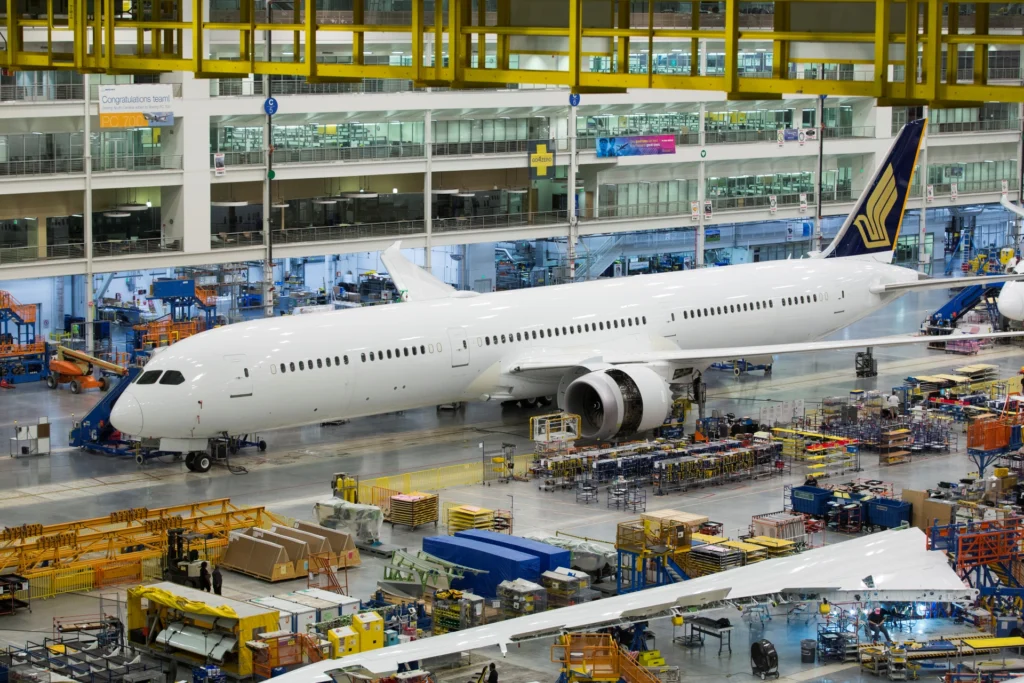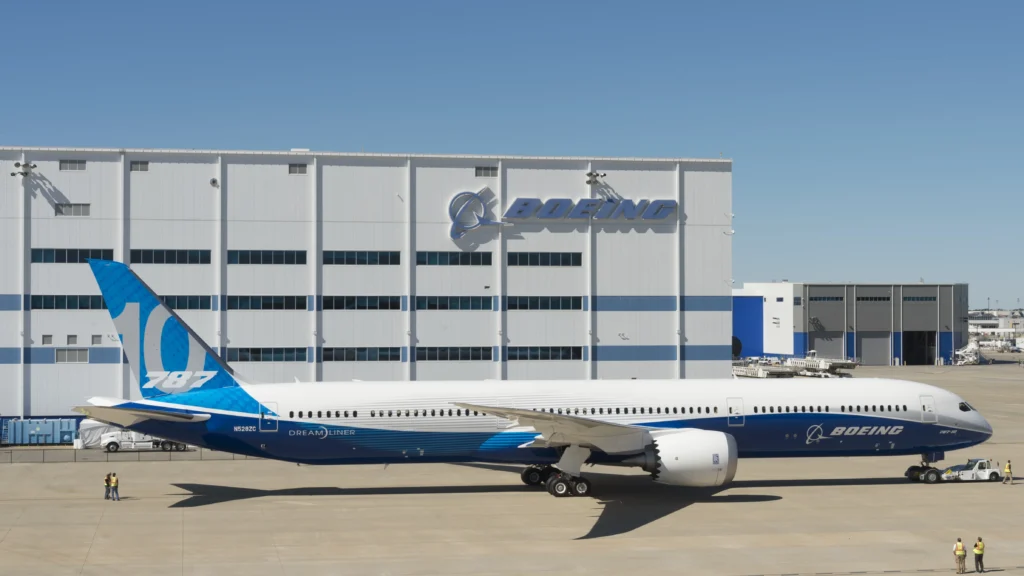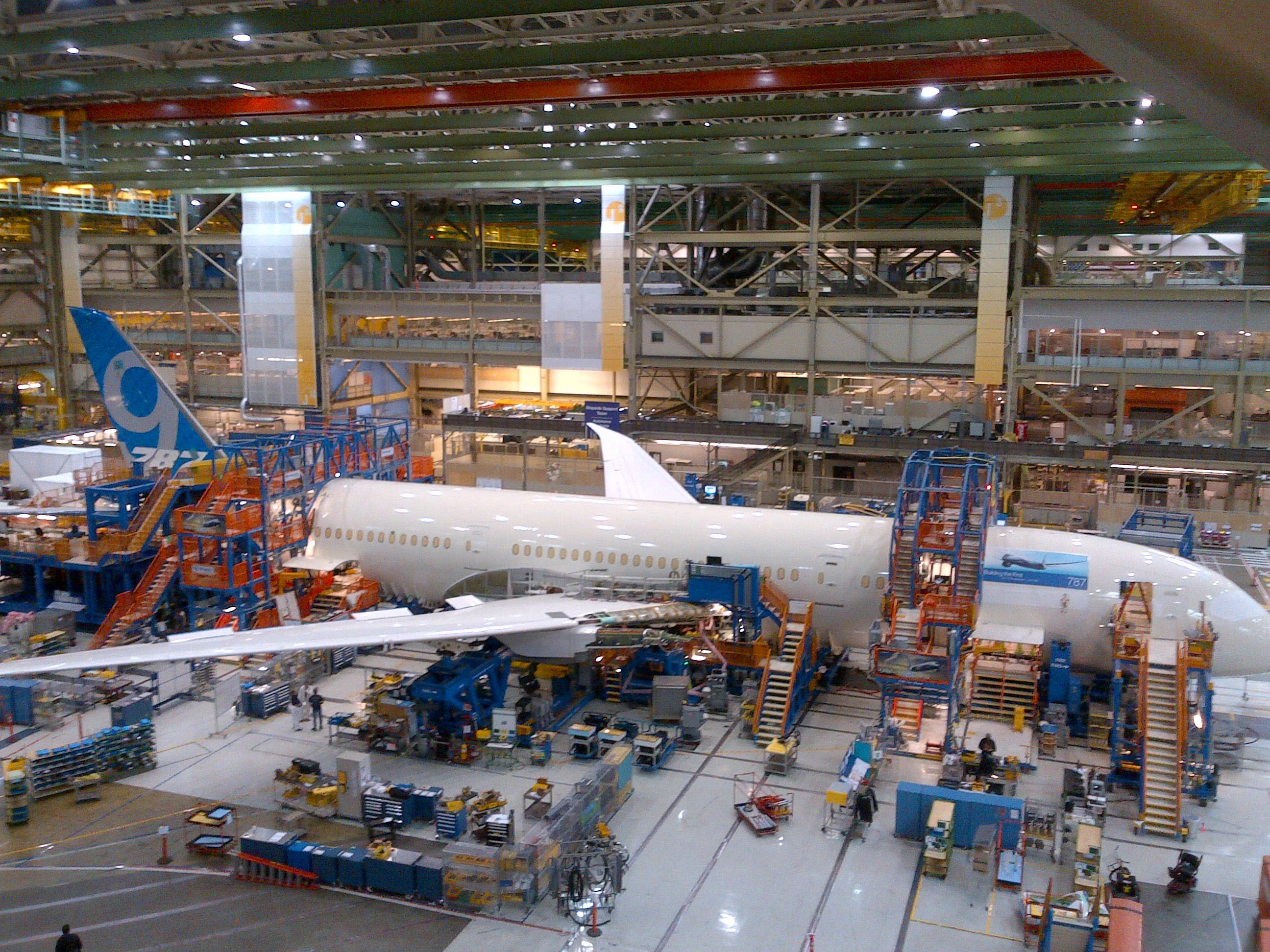SEATTLE- American Aerospace Giant, Boeing will invest $1 billion to expand its 787 Dreamliner manufacturing operations in Charleston County, creating 500 new jobs over the next five years.
The investment targets Boeing South Carolina’s (BSC) existing facilities in North Charleston and Orangeburg, strengthening the company’s 787 Dreamliner production capabilities.

Boeing 787 Production Update
Since establishing operations in South Carolina in 2009, Boeing has grown to employ more than 7,800 people across its Airport and North Campuses in North Charleston and West Campus in Orangeburg.
The company recently acquired the Orangeburg facilities at 174 Millennium Drive, though these will remain unaffected by the current expansion plans.
Boeing will upgrade its North Charleston campuses at 5400 International Blvd. and 9775 Patriot Blvd. to support increased 787 Dreamliner production targets. The program aims to boost production to 10 airplanes per month by 2026, responding to market demand. The expanded operations are expected to become fully functional in early 2027.
The 787 Dreamliner production cycle, which includes fabrication, assembly, and global delivery of 787-8, 787-9, and 787-10 models, will remain centered in South Carolina.

Executive Remarks
Scott Stocker, Vice President and General Manager of the 787 Program and BSC Site Leader, highlighted the strategic importance of the investment. “Since creating Boeing South Carolina in 2009, we’ve marked important milestones, including consolidating 787 Dreamliner production here,” Stocker stated. He emphasized that the expansion reflects Boeing’s commitment to the workforce, the 787 program, and the community.
Governor Henry McMaster praised the decision, noting that the investment “further solidifies South Carolina’s position as a leader in the aerospace industry.” McMaster underscored the significance of 500 new jobs and highlighted the state’s pro-business environment as a key factor in attracting Boeing’s continued investment.
Secretary of Commerce Harry M. Lightsey III celebrated Boeing’s legacy in the state, calling the $1 billion investment “truly something worth celebrating.” The expansion represents a continued vote of confidence in South Carolina’s technological and industrial capabilities.
Charleston County Council Chairman Herbert Ravenel Sass III described Boeing as a “cornerstone of economic growth and innovation” in the region. He emphasized that the expansion solidifies Charleston County’s global aerospace industry leadership and creates substantial opportunities for local residents and businesses.
About S.C. Commerce
South Carolina Department of Commerce (S.C. Commerce) serves as state’s primary economic development agency, dedicated to attracting, supporting, and expanding businesses across diverse industries. The agency’s mission centers on creating economic opportunities that benefit all South Carolinians through strategic, proactive initiatives.
S.C. Commerce focuses on recruiting and supporting companies at every stage of their development, from startup to established enterprise. The agency plays a critical role in helping businesses launch, expand, and build long-term legacies within the state.
As a principal collaborator for SC NEXUS, the department leads a consortium of state leaders from government, utilities, higher education, and other key stakeholders. This initiative explores advanced energy opportunities, demonstrating the state’s commitment to innovative economic development.

Financial Struggle
Despite the optimistic announcement, Boeing faces significant financial challenges. The company reported a staggering loss of over $8 billion in the first nine months of the year, with $6 billion of that loss occurring between July and September.
In October, CEO Kelly Ortberg announced plans to cut 10% of the workforce nationwide, which translates to approximately 17,000 employee reductions.
The investment comes shortly before 220 planned layoffs in South Carolina, previously announced by the company.
These cuts follow a seven-week strike by 33,000 unionized machinists on the West Coast, though the strike did not include non-unionized workers in South Carolina. Ortberg attributed the workforce reduction to overstaffing rather than the work stoppage.
Stay tuned with us. Further, follow us on social media for the latest updates.
Join us on Telegram Group for the Latest Aviation Updates. Subsequently, follow us on Google News

